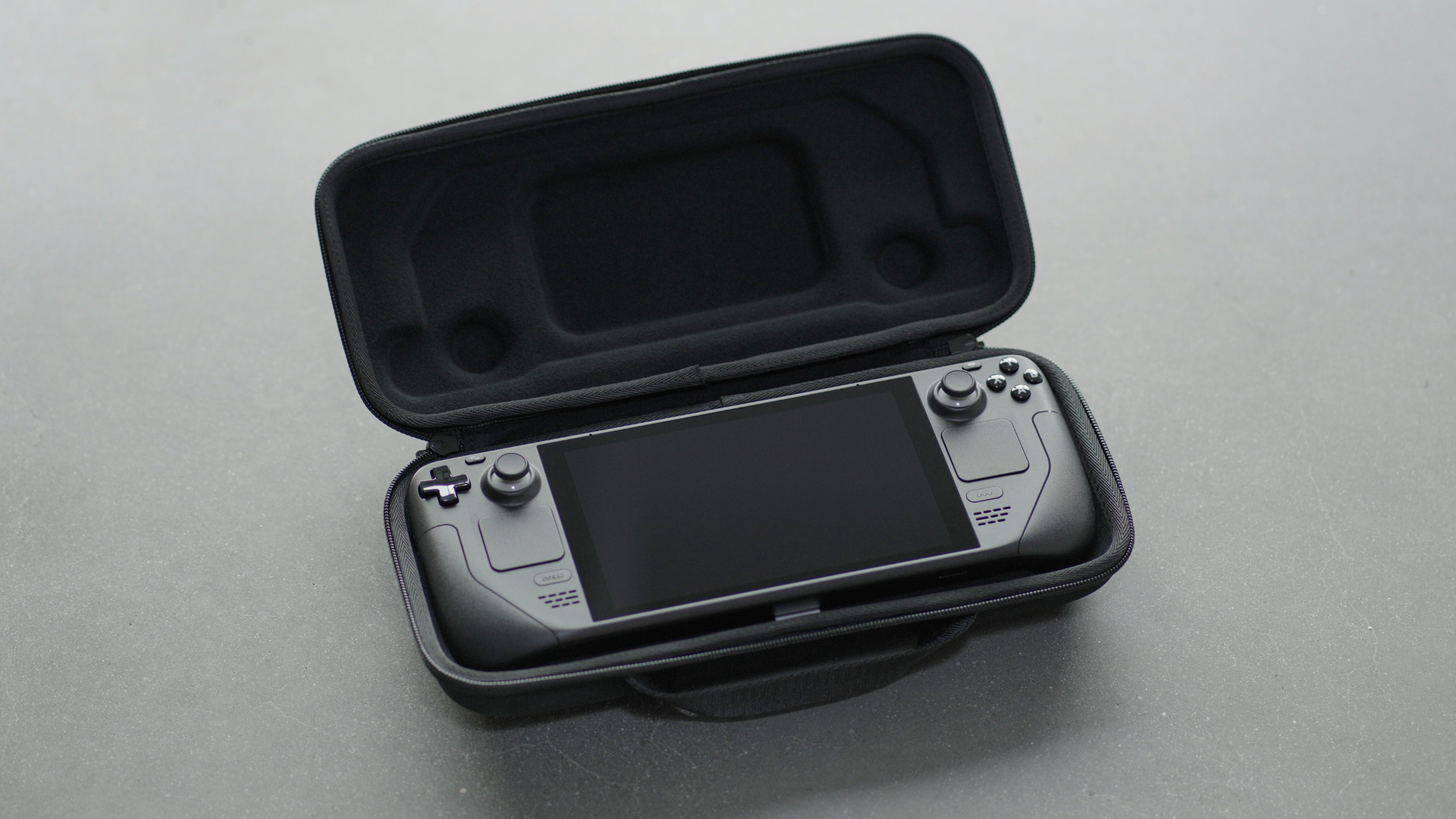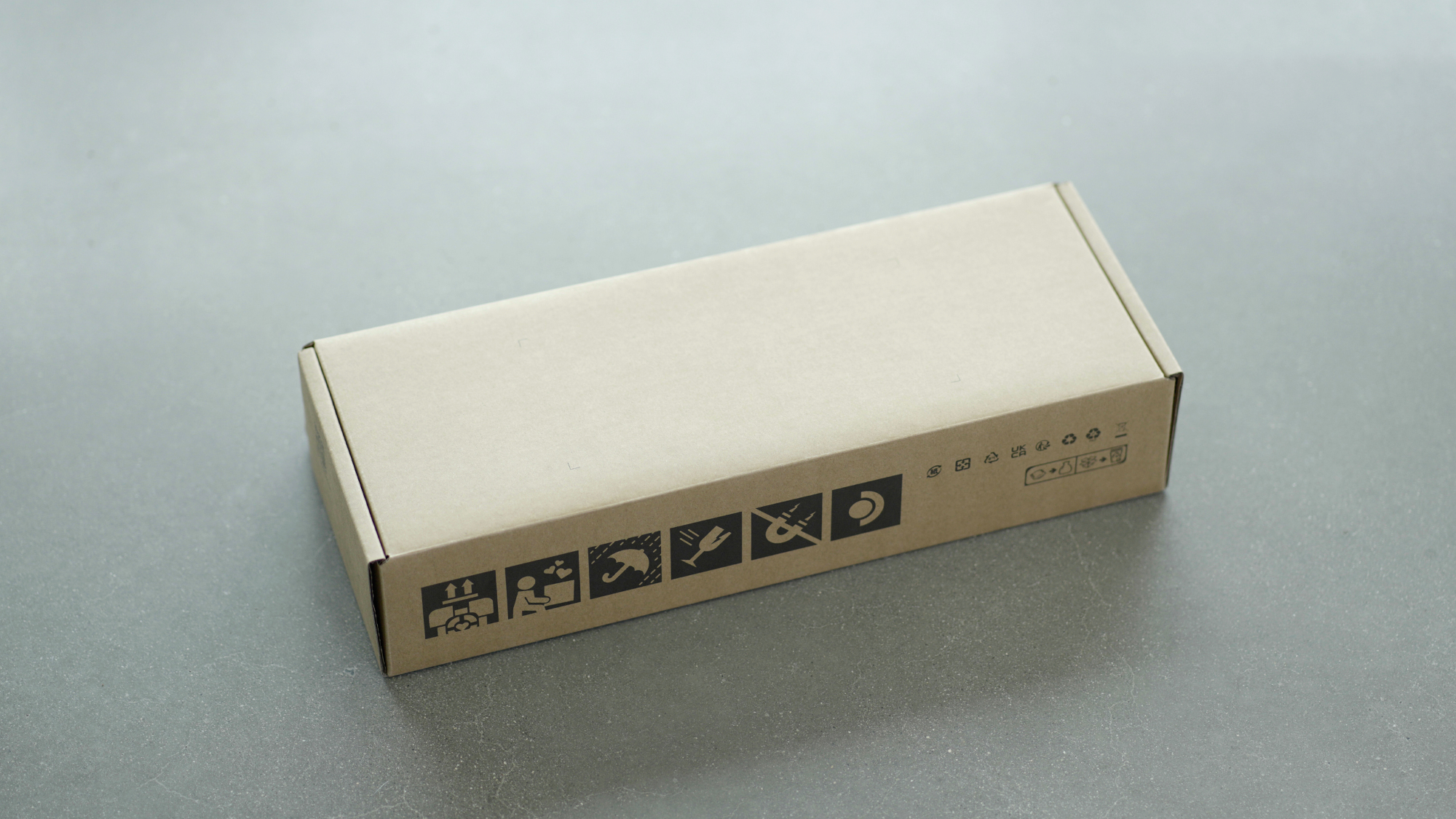Steam Deck users want Valve to take steps to prevent shipping thefts
What's in the box?

Some Steam Deck customers are calling on Valve to alter the packaging that the console is delivered in after reports of consoles seemingly disappearing during shipment.
As reported by PC Gamer, Reddit user u/Defenex created a thread detailing their package having been marked as 'delivered' by FedEx, despite it never arriving at their property. They say that "After a couple of days Fedex comes back and says that their research is complete, their records indicate the package was delivered, and to contact the shipper (Valve) to initiate lost package procedures"
The same thread was later updated to reflect that the Steam Deck finally arrived after an investigation into its disappearance, but it did spark a conversation about similar incidents, during which it was suggested Valve should update the packaging for the console to help conceal its contents.
We should note that there's no evidence to suggest that this particular customer was the victim of attempted theft. Shipments go missing or get delayed for numerous reasons, so while it's reasonable to worry about an expensive gadget disappearing during transit, the fault may lay more with ordering systems, logistics or plain human error rather than theft.
There are numerous unboxing videos for the Steam Deck online that show lithium battery and "fragile electronics" logos, indicating that a potentially expensive gadget is inside. The only official reference to the Steam Deck, or even Valve, on the packaging however, is a discreet Companion Cube that featured in the Portal franchise, located alongside other safety information on the side.
Some users are claiming that Valve originally shipped the Steam Deck out in packaging that displayed the handheld on the box art, though we can't find any evidence that this style of packaging was used.
If you're facing a scenario where your Steam Deck has disappeared despite being marked as delivered then you should file a support ticket with Valve as well as contacting the courier service. In the above case, Valve refunded the customer in full before their Steam Deck was eventually delivered, but we're unclear if there's a specific procedure to follow if your own package goes missing. We have reached out to Valve for additional information.
Analysis: don't misdirect your frustrations

It's easy to jump to the worst conclusions when a delivery you've been waiting on fails to arrive, but any mass fulfillment is rarely achieved with zero issues. While the Reddit user who started the original thread was initially displeased with the outcome, Valve really isn't the party at fault.
After raising the issue with the Steam Deck manufacturer, they received a full refund for the value of the product, and while a replacement unit would have been more beneficial to the customer, we don't know if Valve actually has a surplus of these to send out in these circumstances (and fortunately their console did turn up).
Valve explained: “We have been working hard to increase the number of Steam Decks we can produce this year, and we now have more clarity on our longer term production schedule".
Sign up for breaking news, reviews, opinion, top tech deals, and more.
The packaging is also pretty inconspicuous, minus the Companion Cube along the side. We certainly wouldn't advise that safety messages regarding the contents being fragile and containing li-ion batteries be removed, as that brings more risk that the devices could arrive broken, and could pose safety issues for anyone handling the packages.
Still, if you have to re-order a Steam deck using refunded cash, you're going to be waiting for some time to get your hands on it, as it's likely that any fresh reservations will get a Q4 2022 or even 2023 delivery date.
- These are the best Steam games
Jess is a former TechRadar Computing writer, where she covered all aspects of Mac and PC hardware, including PC gaming and peripherals. She has been interviewed as an industry expert for the BBC, and while her educational background was in prosthetics and model-making, her true love is in tech and she has built numerous desktop computers over the last 10 years for gaming and content creation. Jess is now a journalist at The Verge.
